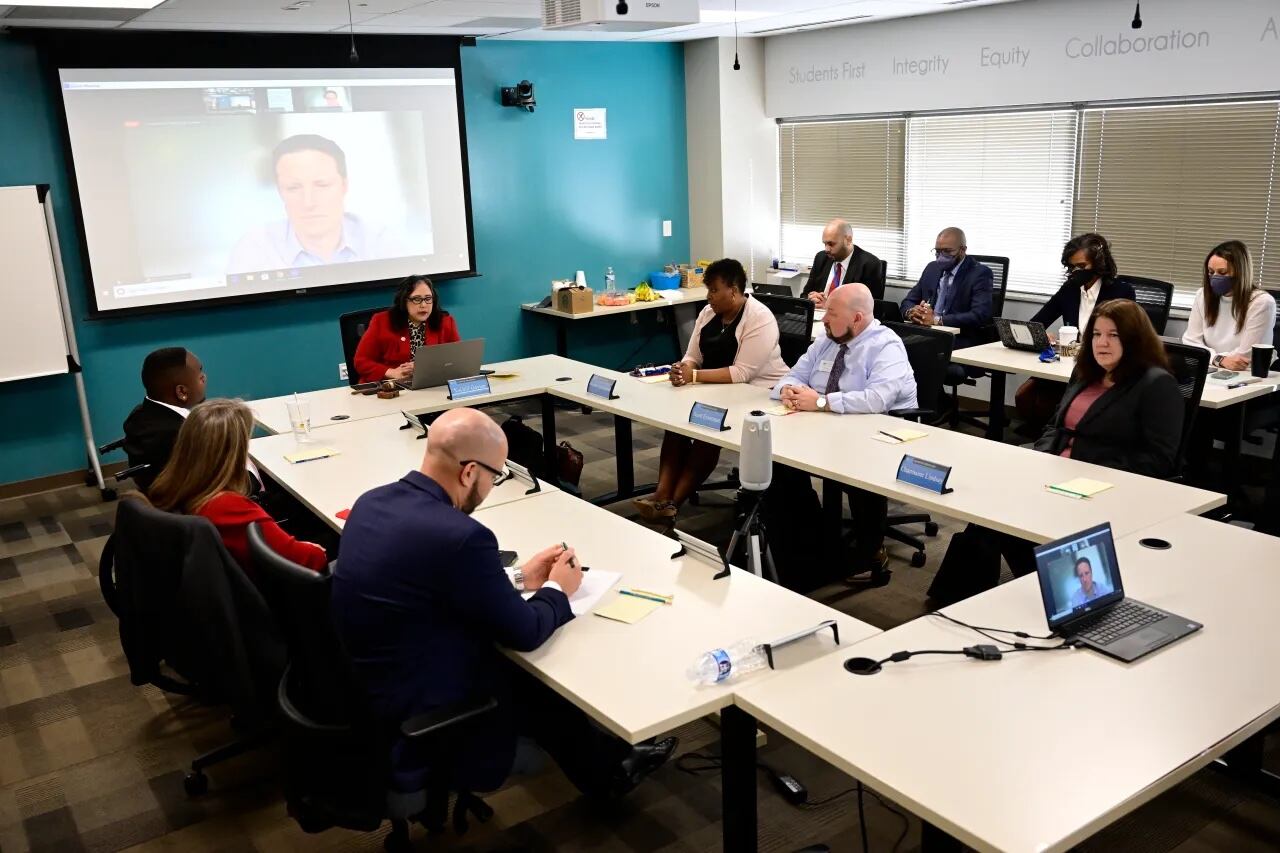Chalkbeat is a nonprofit news organization covering public education in communities across America. Sign up for our free Colorado newsletter to keep up with education news from Denver and around the state.
Update: On Monday, the Denver school board removed any discussion of a potential censure from the agenda. Read more.
Denver school board President Xóchitl “Sochi” Gaytán said she will move to censure board Vice President Auon’tai Anderson for alleged violations of board policy in the wake of the March 22 shooting at East High School.
Gaytán has accused Anderson of disclosing to the press confidential information from a closed-door executive session of the board, among other violations. Anderson has said the information he disclosed was shared outside of the executive session.
The board is set to discuss the alleged violations at a meeting Monday before the matter moves to a vote on April 20, Gaytán said.
Anderson declined to comment Friday.
The move comes after a year of personality conflicts, power struggles, and attempts at reconciliation between board members. The board is under more public scrutiny in the wake of the shooting at East, which has raised questions about school safety and discipline policy.
Censuring a board member requires a majority vote of the board.
On March 23, the day after a student shot two staff members at East, Denver board members met in a closed-door session, then voted unanimously to return police officers to Denver schools. On March 27, Anderson, who previously led the effort to remove police from schools, held a press conference in which he said the mayor forced the board’s hand.
Anderson said Denver Mayor Michael Hancock “had an executive order ready to be drafted and declare a public health emergency … to deploy school resource officers back to schools.” Hancock’s office has denied this.
Gaytán described Anderson’s comments as a violation of board policy in a memo last month.
According to a copy obtained by Chalkbeat, the memo alleges that Anderson “disclosed information discussed in Executive Session. Specifically, naming the Mayor’s private communication with the Superintendent regarding the creation of an Executive Order to address school safety.”
Anderson has said that Superintendent Alex Marrero relayed that information to him before the executive session.
Gaytán’s memo also chastises Anderson for holding the press conference at all and for making “inaccurate statements” about the shooter at East, student Austin Lyle, and his history of expulsion from the neighboring Cherry Creek School District.
The memo lays out what Gaytán sees as the potential impacts of Anderson’s actions.
“Statements from the press conference being held by VP Anderson may be used as part of a lawsuit against the District regarding the Board’s culpability for the violence at East HS,” it says.
Anderson was censured by the board in 2021 for violating expectations of board member behavior after an investigation found he’d had flirtatious contact with students on social media. Investigators also found that Anderson made two social media posts during the investigation that could have been seen as coercive or intimidating to witnesses.
Melanie Asmar is a senior reporter for Chalkbeat Colorado, covering Denver Public Schools. Contact Melanie at masmar@chalkbeat.org.





